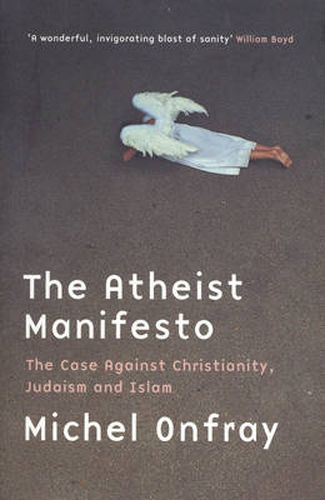Readings Newsletter
Become a Readings Member to make your shopping experience even easier.
Sign in or sign up for free!
You’re not far away from qualifying for FREE standard shipping within Australia
You’ve qualified for FREE standard shipping within Australia
The cart is loading…






From the twenty-first century’s Nietzsche, a work that is sure to stir debate on the role of religion in Australian society and politics.
Not since Nietzsche has a work so groundbreaking and explosive appeared, to question the role of the world’s three major monotheistic religions. If Nietzsche proclaimed the death of God, French philosopher Michel Onfray starts from the premise that not only is God still very much alive but increasingly controlled by fundamentalists who pose a danger to the human race.
Documenting the ravages from religious intolerance over the centuries, Onfray makes a strong case against the three religions for their obsession with purity and their contempt for reason and intelligence, individual freedom, desire and the human body, sexuality and pleasure, and for women in general. In their place, all three demand faith and belief, obedience and submission, extol the next life to the detriment of the here and now. Tightly argued, this is a work that is sure to stir debate on the role of religion in Australian society-and politics.
$9.00 standard shipping within Australia
FREE standard shipping within Australia for orders over $100.00
Express & International shipping calculated at checkout
From the twenty-first century’s Nietzsche, a work that is sure to stir debate on the role of religion in Australian society and politics.
Not since Nietzsche has a work so groundbreaking and explosive appeared, to question the role of the world’s three major monotheistic religions. If Nietzsche proclaimed the death of God, French philosopher Michel Onfray starts from the premise that not only is God still very much alive but increasingly controlled by fundamentalists who pose a danger to the human race.
Documenting the ravages from religious intolerance over the centuries, Onfray makes a strong case against the three religions for their obsession with purity and their contempt for reason and intelligence, individual freedom, desire and the human body, sexuality and pleasure, and for women in general. In their place, all three demand faith and belief, obedience and submission, extol the next life to the detriment of the here and now. Tightly argued, this is a work that is sure to stir debate on the role of religion in Australian society-and politics.